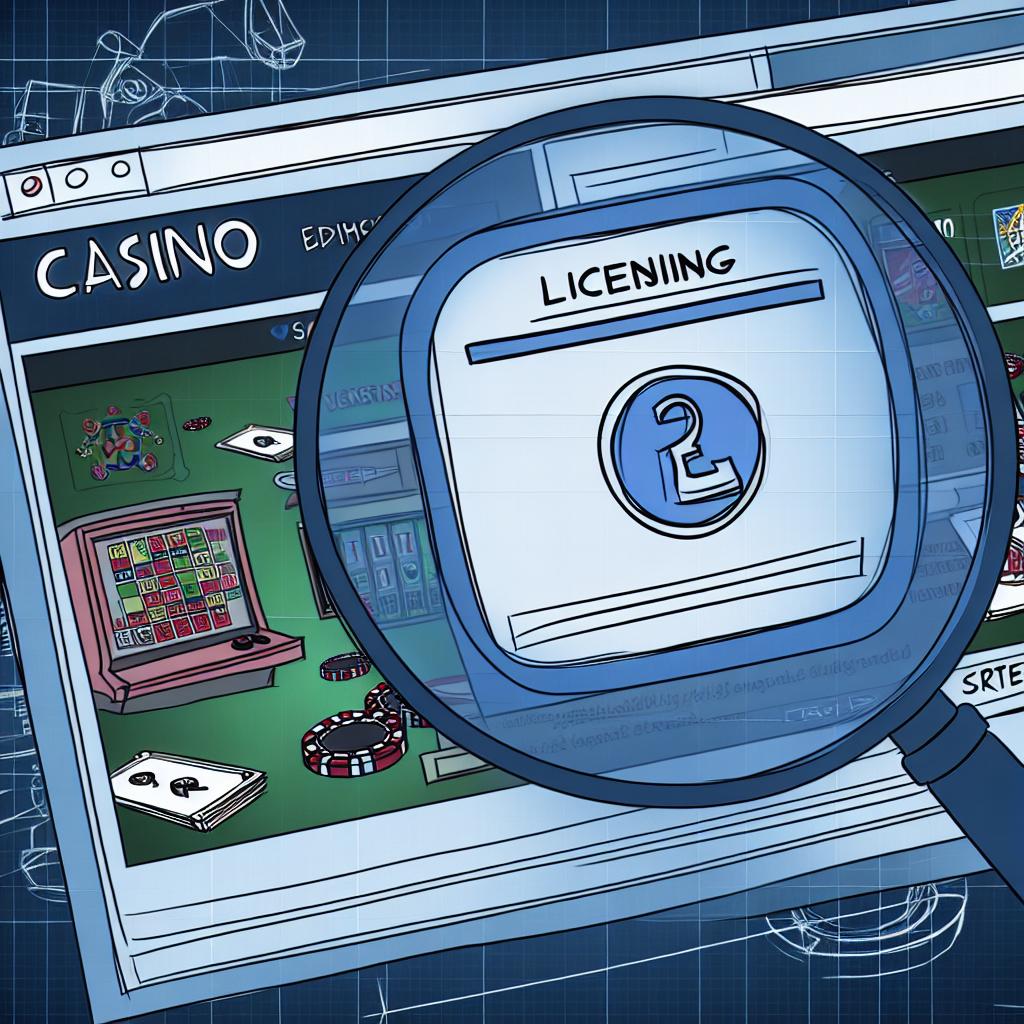
How do I know if an online casino is licensed?
Understanding Online Casino Licensing
When engaging in online gambling, ensuring that the platform is licensed is crucial for guaranteeing a secure and fair gaming experience. Licensing signifies that a casino adheres to specific standards and is monitored by a regulatory authority. This means they comply with stringent protocols for fairness, player protection, and responsible gambling.
Checking the Casino’s Website
Most licensed online casinos make their licensing information easily accessible. Typically, this information can be found at the bottom of the casino’s homepage. It is advisable to look for logos or statements that indicate license numbers and jurisdiction thoroughly. Such transparency is often a sign of a casino’s legitimacy and intention to operate within a legal framework. Some online casinos go further by providing links to their licensing authority, enabling potential players to verify their credentials instantly.
License Verification
After locating the license details, verifying them is the next step. This can usually be done by visiting the website of the regulatory authority mentioned. Most authorities provide online databases where you can check the validity of a casino’s license by entering the relevant details. Some authorities even offer an automated search system where you simply have to input the casino’s name or license number to receive real-time verification of licensure status. This is an important measure to prevent being exploited by rogue operators.
Common Regulatory Bodies
Several well-known bodies regulate online casinos, including:
UK Gambling Commission: Established under the UK Gambling Act 2005, this governing body regulates all forms of gambling in the UK. It ensures that the industry remains free of criminal associations, operates fairly, and protects minors and vulnerable individuals.
Malta Gaming Authority (MGA): The Malta Gaming Authority is one of the most respected regulatory bodies in the industry, offering licenses to a wide array of operators across Europe. The MGA is known for its stringent regulatory framework, which includes regular audits and oversight.
Curaçao eGaming: Licenses from Curaçao eGaming have been around since 1996, making it one of the oldest licensing bodies. While it is more lenient compared to the UKGC or MGA, it still provides a basic level of authority and fair play enforcement.
Each of these regulatory bodies has its own specific criteria and oversight processes. Despite differences in rigor and enforcement, being licensed by any of these authorities is usually a positive sign of a casino’s reliability.
Beware of Red Flags
Certain signs may indicate an unlicensed or fraudulent casino. Be cautious of casinos lacking clear licensing information or those not transparently displaying their credentials. Furthermore, avoid casinos with negative reviews indicating payment issues or unfair practices. It is crucial to scrutinize any casino that lacks a license visible on their homepage or cannot provide it upon inquiry. Another red flag is when a casino’s website is frequently down or changes its URL, which might be indicative of rogue operations.
Casino Review Platforms
Due diligence should involve more than just checking for a license. Review platforms can provide additional insights into a casino’s credibility. These websites often analyze and report on the legitimacy and reputation of various online casinos, highlighting both positive and negative aspects. They can offer a comprehensive overview of a casino’s performance, including payout rates, game fairness, customer service quality, and the speed of financial transactions.
Users should choose review platforms that provide a balanced view, are not overly positive without reason, and include a vast number of user reviews. These platforms are often community-driven and receive constant updates, giving an evolving view of an online casino’s standing in the market.
Understanding the Importance of Licensing
Licensing is not just a formality but a critical foundation of responsible online gambling practices. It serves multiple purposes, not least establishing a trusted environment where players can focus on enjoyment without worrying about the legitimacy of their chosen platform. Licensing authorities ensure that casinos operate in a manner that is transparent and adheres to the highest operational standards.
What Licensing Entails for the Casino
For the casino, possessing a license means also submitting to regular audits by the licensing body. These audits guarantee that games are fair and random, giving players a real chance to win. They usually involve examining the casino’s financial practices and handling of player data, ensuring that casinos have adequate measures in place to protect personal information.
The Impact of License Type and Jurisdiction
Licenses vary by type and jurisdiction. For instance, casinos targeting European players are typically licensed by the MGA or UKGC due to their stringent regulations. Others might choose Curaçao due to lower costs and fewer restrictions, though this comes with its challenges in terms of player trust and perceived reputation.
Understanding the impact of the licensing authority and jurisdiction on the player experience is essential. A license from a respected body often means better recourse and dispute handling for the player in case of any issues with the operator.
Conclusion
Ensuring an online casino is licensed is imperative for securing a safe betting environment. By thoroughly checking licensing information and verifying it through official channels, you can confidently choose a reliable online casino. The use of legitimate casinos not only enhances security but encourages responsible gambling practices, benefiting both players and the industry as a whole. Always explore beyond licensing to include user reviews and the casino’s overall reputation to assure a comprehensive choice in the vast world of online gaming.
